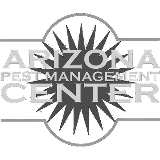Jul 10, 2024
Resistant variety: A Fundamental Tool for Managing Difficult-to-Control Pests in Organic Crops
Resistant varieties are crucial for effective insect pest management, more specifically in organic crop production. When growing crops organically, resistant varieties should be the first line of defense against insect pests. Compared to nonresistant varieties, insect-resistant crop varieties are less vulnerable to insect attacks or yield well despite insect attacks.
Resistance in crops can be expressed through different mechanisms, including antibiosis, antixenosis, and tolerance. For the antibiosis mechanism, the resistant crops act on the life history traits of the pest, such as affecting fecundity, growth, development, and survival. Thus, this reduces the pest population. On the other hand, antixenosis is characterized by the ability of the crop to affect the behavior of the pest by deterring it after initial tasting or probing, which is non-preference. For the tolerance mechanism, however, the crops can sustain a high density of pests and still maintain their yield potential. In most cases, the overall resistance of a variety is a combination of all these three mechanisms.
There is also a type of resistance called phenological resistance, field resistance, or pseudo-resistance, which is when the crop appears to be resistant because it is at a less susceptible stage when a pest attack occurs. This may happen either because of the rate of development of the crop or due to management practices implemented, causing the crop to escape the pest pressure. Thus, the implementation of proper agronomic practices plays a significant role in improving the ability of crops to resist pest attacks.
In certain scenarios, additional insect control measures such as the use of bioinsecticides (in organic production) and natural enemies may be necessary in conjunction with an insect-resistant variety for comprehensive pest control. However, even in cases where additional control measures are required, the cultivation of a resistant variety can significantly delay and reduce the amount of insecticide applications needed. This underscores the economic, ecological, and environmental benefits of using insect-resistant crop varieties.
Previous studies conducted at Yuma Agricultural Center demonstrated that resistant lettuce varieties can provide suitable control of aphids affecting lettuce in the region. Therefore, it is very important to consider cultivating insect-resistant lettuce varieties for suitable management of aphids in organic lettuce production since biological insecticide options are currently limited. My lab is planning to evaluate several lettuce varieties to determine lettuce varieties that carry resistance against aphids in an attempt to generate applicable information on varieties that could fit well within the production practices and environmental conditions of Arizona’s vegetable-growing regions.
To contact Wilfrid Calvin go to:
wilfridcalvin@arizona.edu

















